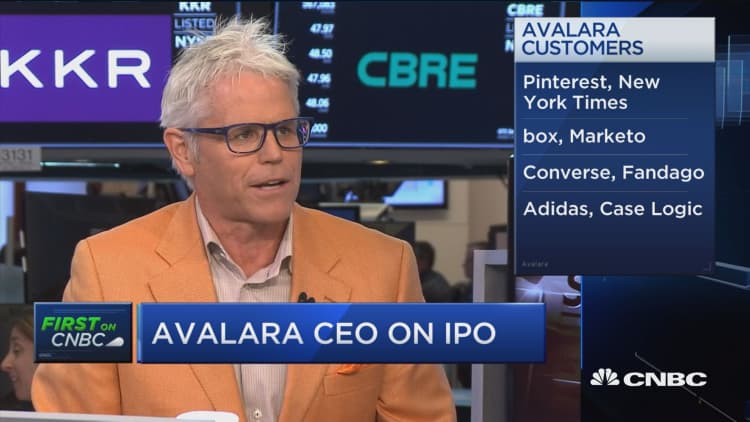Tax preparation company Avalara soared as much as 33 percent Thursday after a historic Supreme Court decision on collecting sales tax from e-commerce.
The stock later pared its gains, but still ended the session 13 percent higher at $51.04.
The Supreme Court's Thursday decision means states can collect sales tax from online sellers even if they don't have a "physical presence" like a store or warehouse in those states. It's good news for states looking to reap additional sales tax revenue, but messy for companies that have to navigate policies that may vary state by state.
The ruling sent online retailers into a tailspin, but it was a major boon for Avalara, which offers automation software to help companies comply with sales tax laws.

Thursday's decision determined a case in South Dakota, but Avalara pointed out that many other states are hoping to better collect sales tax from online retailers.
"As we continue to see state and local governments enact different strategies to expand sales tax collection on Internet purchases, the complexity increases for businesses of all sizes," the company said in a statement.
Representatives for Avalara declined to comment further on how the ruling may specifically affect their business.
Avalara shares have been on a tear since the company went public June 15. As of Thursday's close, the stock is up 112 percent from its initial public offering price of $24.


